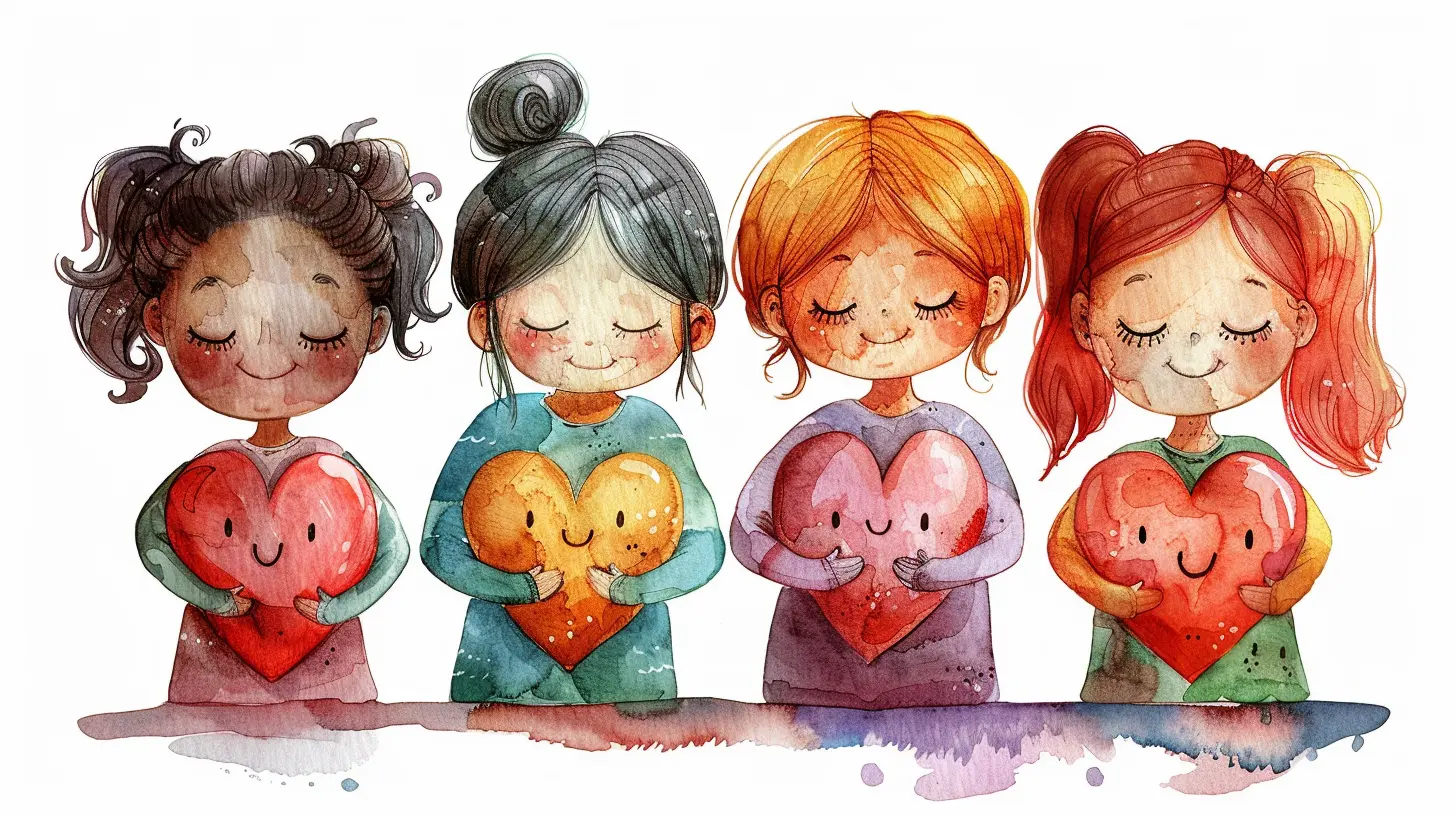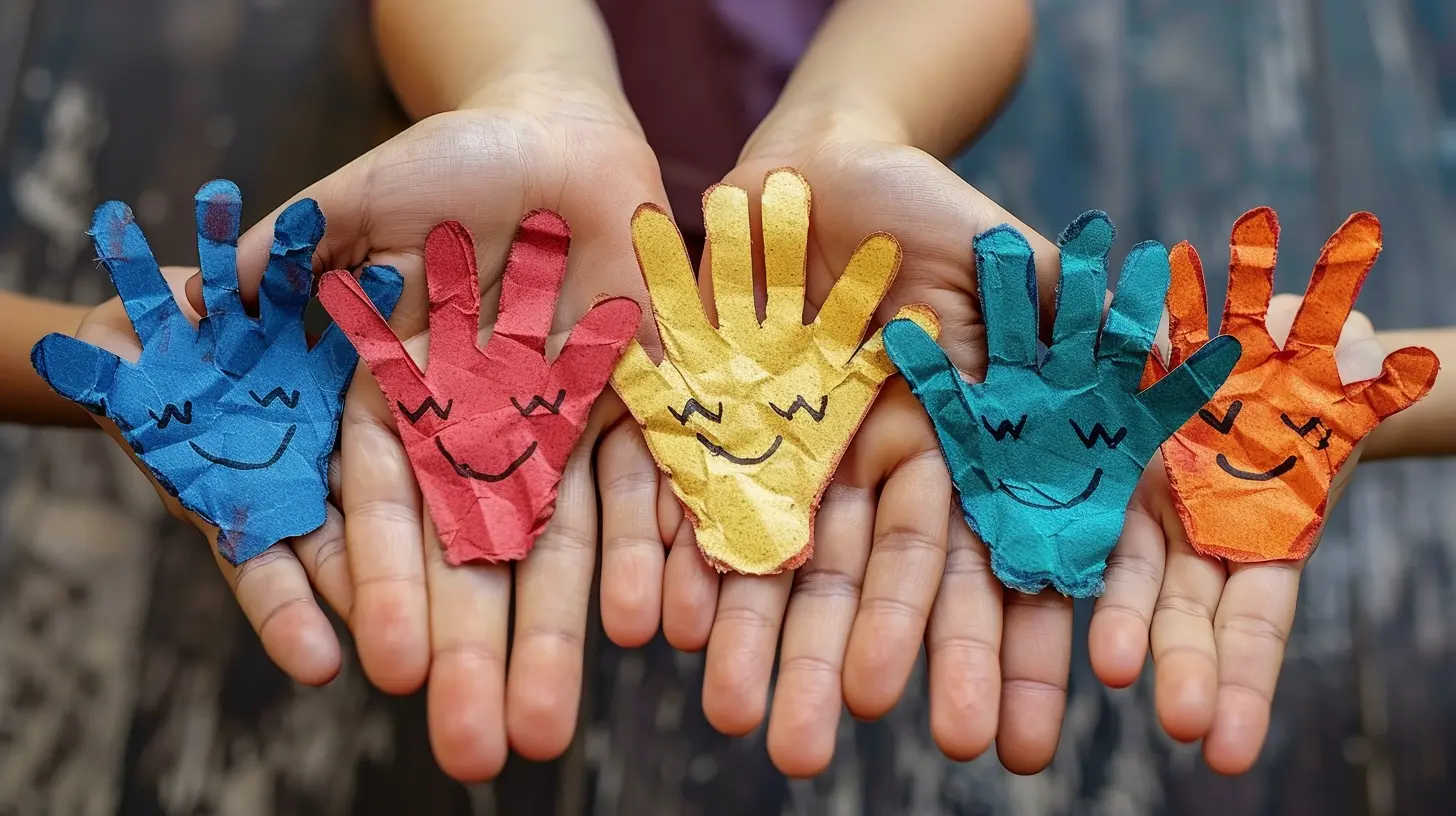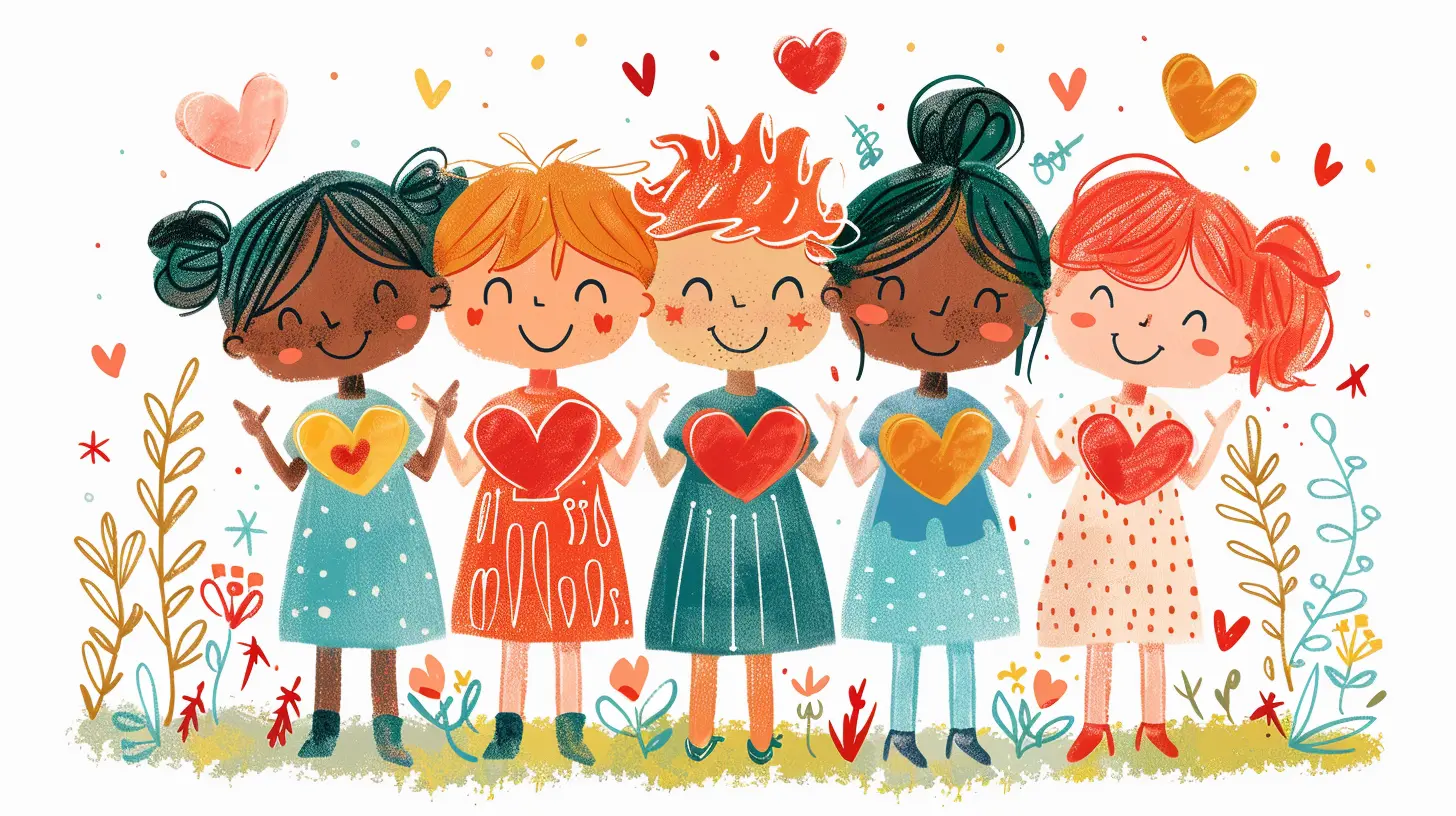Encouraging Students to Build Healthy Relationships
28 September 2025
Relationships are like houseplants—neglect them, and they wither. Overwater them, and they drown. But with the right balance? They thrive!
For students, building healthy relationships is just as crucial as acing that math test (maybe even more). Whether it's friendships, romantic connections, or relationships with teachers and family, fostering positive interactions shapes emotional well-being and personal growth.
But how do we, as educators, parents, or even students themselves, encourage healthy connections without sounding like a lecture on the importance of vegetables? Let’s break it down—playfully, of course! 
Why Are Healthy Relationships So Important for Students?
Think of relationships like WiFi signals. Strong connections mean smooth communication, but weak ones? Constant disconnections and frustration!Healthy relationships provide:
- Emotional Support – Nothing beats having someone who gets you, especially when life feels like a pop quiz you forgot to study for.
- Better Communication Skills – If students can master TikTok trends, they can definitely learn how to communicate effectively.
- Improved Mental Health – Ever had a friend who made your day better just by existing? That’s the power of good relationships.
- Higher Academic Performance – Believe it or not, positive relationships can actually boost grades. A supportive environment is like a personal cheerleading squad pushing students to do their best.
Now that we know why relationships matter, let’s dive into how to build and maintain them. 
1. It All Starts with Self-Respect
Before students can form healthy relationships, they need one very important thing—a good relationship with themselves.Would you trust a chef who refuses to taste their own cooking? Exactly! Respecting oneself sets the foundation for how others should treat us.
Encourage students to:
- Set personal boundaries (saying "no" is not a crime!)
- Avoid people who drain their energy like a phone battery on 1%
- Recognize their worth beyond grades and popularity
Once they get this part right, forming strong external relationships becomes much easier. 
2. Communication – More Than Just Talking
Ever played a game of "telephone" and ended up with a completely different message at the end? That’s what happens when communication goes wrong.Teaching students good communication skills is a game-changer. Here’s the golden rule: Listen more than you speak.
Encourage:
- Active Listening – Nod, paraphrase, and actually pay attention instead of waiting for their turn to speak.
- Open and Honest Conversations – Speak up about feelings instead of bottling them up like a shaken soda can.
- Non-Verbal Communication – Body language speaks louder than words. A well-timed eye roll? Priceless (but maybe not in front of a teacher).
If students master communication, they’ll save themselves from countless misunderstandings and unnecessary drama. 
3. Friendships: Quality Over Quantity
A thousand social media followers don’t always equal real friends. Friendships should be like a carefully curated playlist—only the best make the cut!Encourage students to:
- Choose friends who genuinely support them, not just those who tag them in memes.
- Let go of toxic friendships (yes, even if they’ve been friends since kindergarten).
- Be a good friend themselves—kindness is not an outdated trend!
A few solid friendships are way better than a sea of acquaintances who wouldn’t text back in a crisis.
4. Romantic Relationships: No Need to Rush
Ah, young love. It’s sweet, dramatic, and sometimes disaster-prone.Students often feel intense pressure to date, but here’s the truth: There’s no rush!
Remind them:
- Healthy relationships should feel supportive, not suffocating.
- Mutual respect is a must—no exceptions!
- It’s okay to be single and focus on personal growth (and grades).
Encouraging students to take their time ensures they form relationships that actually bring joy instead of stress.
5. Social Media & Relationships – A Double-Edged Sword
Social media is like fire. It can keep you warm or burn your house down.While it helps students stay connected, it can also create unrealistic expectations and unnecessary drama.
Help them navigate this digital world by:
- Avoiding Comparisons – Instagram relationships may look perfect, but filters hide a lot.
- Communicating Off-Screen – If their only interaction is through memes and emojis, is it really a friendship?
- Setting Boundaries – Not everything needs to be shared online (especially not that cringy argument with their BFF).
A little digital detox never hurt anyone!
6. Conflict Resolution: Because Disagreements Are Inevitable
Even the best of friends fight. But instead of ghosting or throwing shade, students should learn healthy ways to resolve conflicts.Here’s a simple formula:
1. Stay Calm – Yelling solves nothing (except maybe scaring the family pet).
2. Talk It Out – Address issues directly instead of bottling them up.
3. Find a Solution – Compromises exist! Life isn’t always about winning.
Handling conflicts maturely strengthens relationships rather than breaking them.
7. The Role of Family in Shaping Relationships
Whether students admit it or not, family plays a huge role in shaping how they connect with others.Encourage them to:
- Spend more time with family (yes, even if their sibling is annoying).
- Communicate openly with parents or guardians.
- Learn from family dynamics—what works, what doesn’t, and what they want to change in their own relationships.
A strong family bond creates a solid foundation for healthy relationships in the future.
8. Encouraging Empathy & Kindness
Ever met someone who acts like a villain in a reality TV show? Don’t be that person!Empathy and kindness make relationships smoother, and let's be honest—being nice never goes out of style.
Urge students to:
- Put themselves in others’ shoes (metaphorically, of course).
- Offer support when friends are struggling.
- Choose kindness, even when it’s easier to be sarcastic.
A simple "How are you?" can work wonders in making someone’s day better.
9. Teachers & Students – A Relationship That Matters
Yes, students and teachers can have a great relationship without it feeling like a dictatorship!Encourage respectful interactions by:
- Listening to teachers instead of treating lessons like background noise.
- Asking for help when needed—teachers are there for a reason!
- Engaging in class discussions without fear of judgment.
A positive student-teacher relationship fosters a thriving learning environment.
Final Thoughts: Building Relationships That Last
Healthy relationships aren’t about perfection; they’re about connection, respect, and growth.Encourage students to be mindful of the relationships they build. Whether it’s friendships, family, or romantic connections, the goal is to surround themselves with people who uplift, support, and inspire them.
After all, life’s way more fun when you’re surrounded by the right people!
all images in this post were generated using AI tools
Category:
Mental Health In SchoolsAuthor:

Madeleine Newton
Discussion
rate this article
1 comments
Gideon Rogers
Healthy relationships are the foundation for lifelong learning and personal success—start nurturing today!
September 29, 2025 at 4:59 AM

Madeleine Newton
Absolutely! Nurturing healthy relationships is essential for growth and success—let’s prioritize them!


